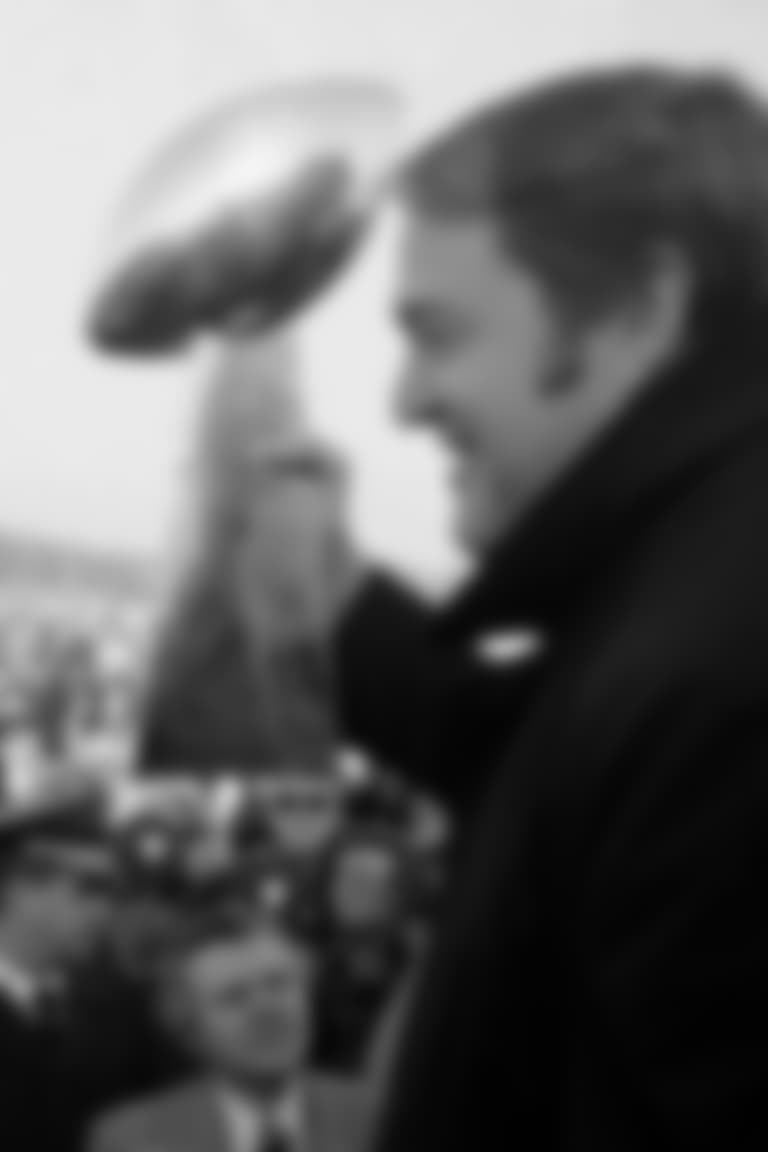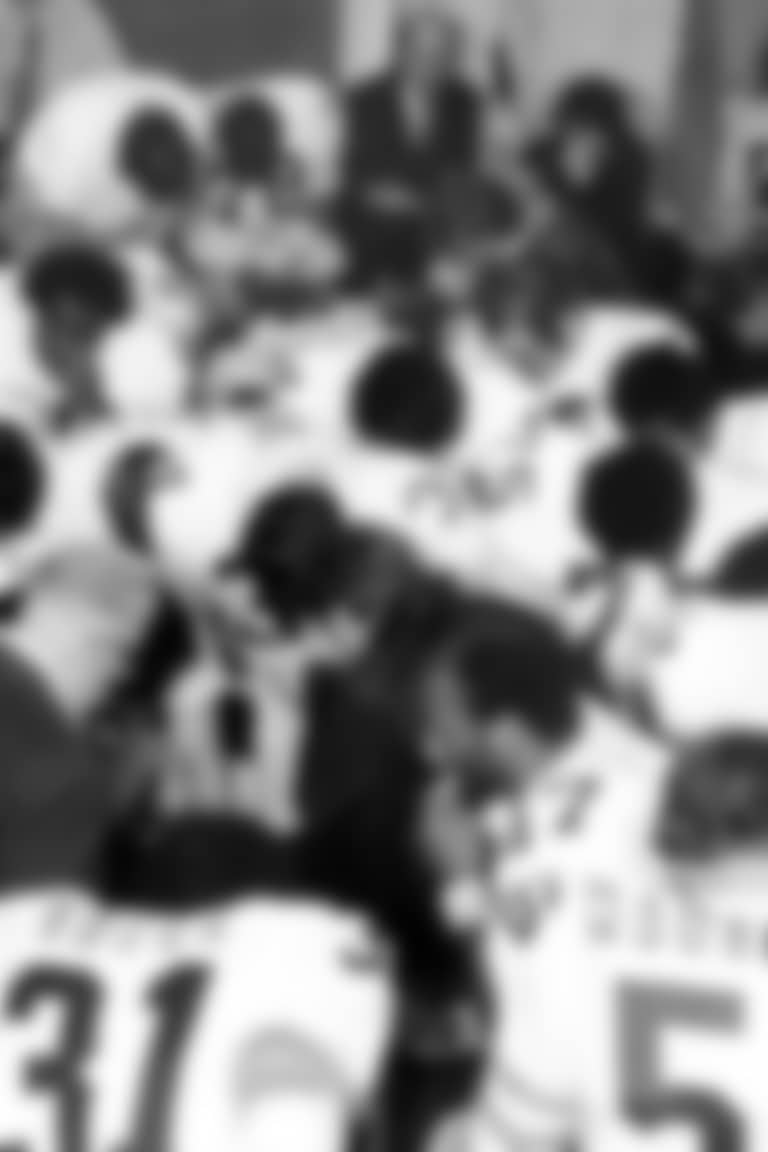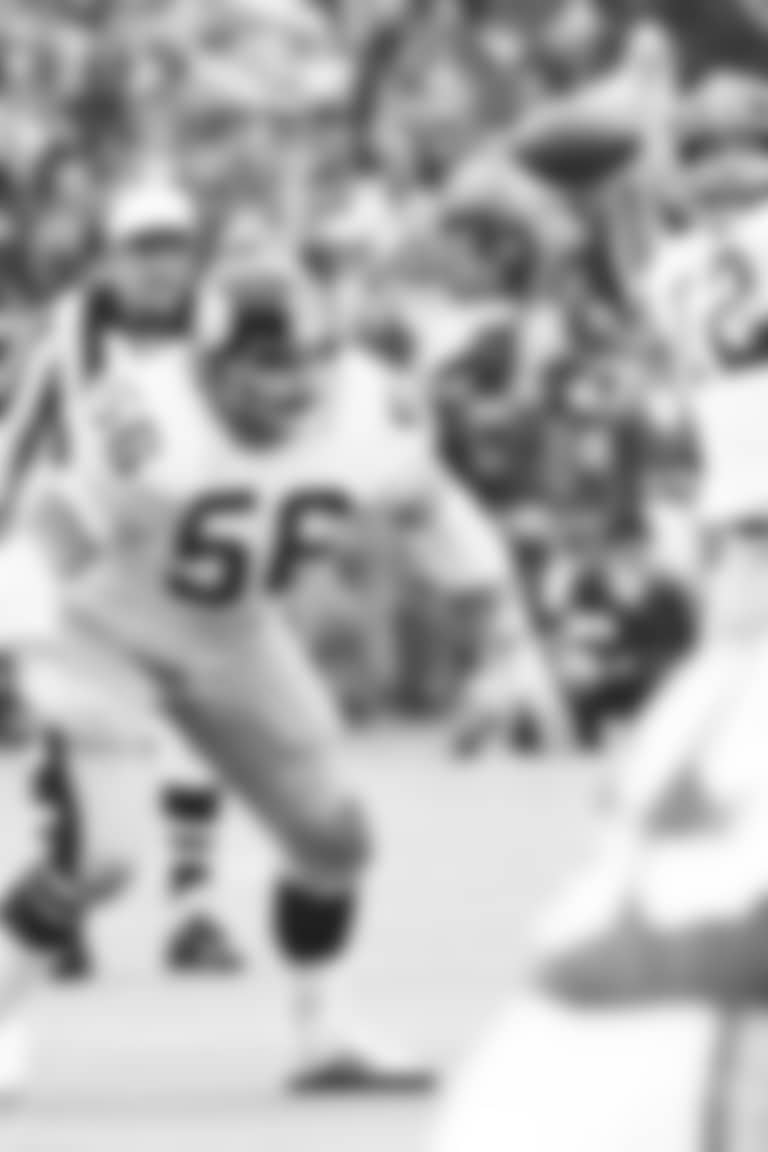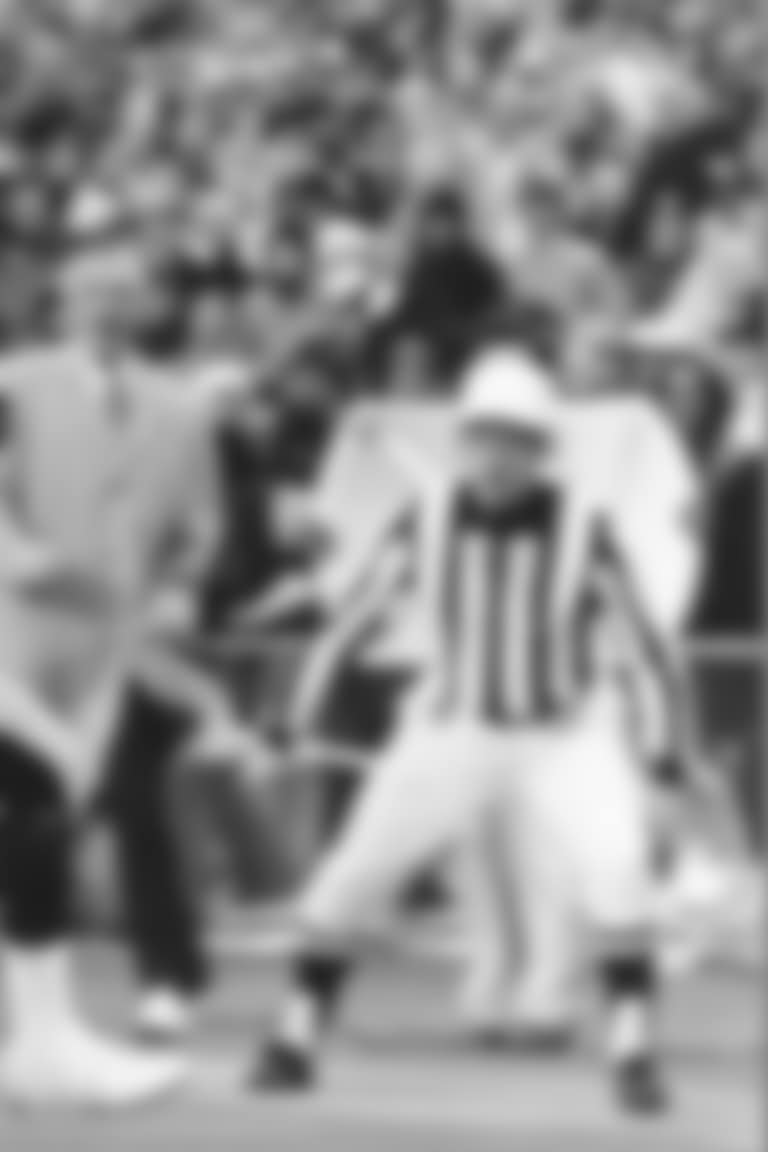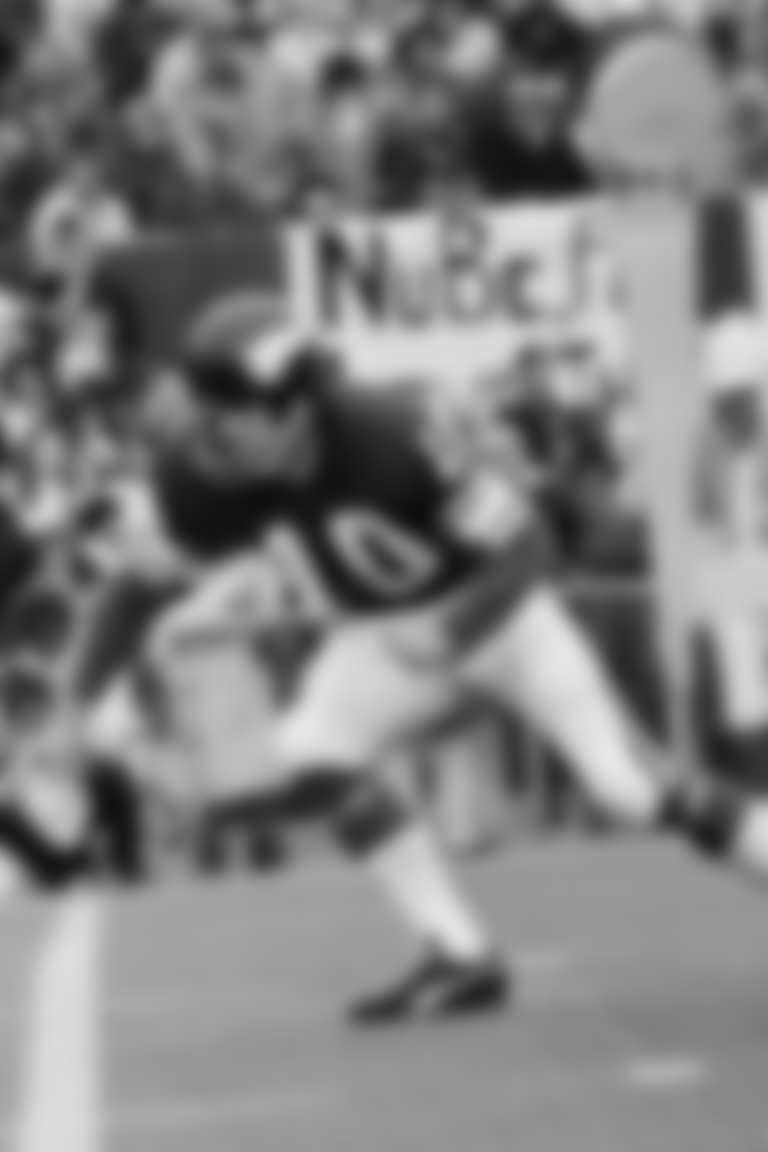It was Dwight White, who heroically played in the game, that would get the Steelers on the board first when he sacked Vikings quarterback Fran Tarkenton in the end zone for the safety and 2-0 lead.
White was hospitalized the week leading up to the game with pneumonia, but somehow didn't just show up to play, but was one of the game's key factors.
"Dwight had pneumonia and couldn't practice the whole week," recalled Shell. "We got word that this guy was going to walk out of the hospital and play in the game. I mean, that injected a shot of momentum in us, and confidence in us that if Dwight can get out of the hospital and play, we better do our best."
And everyone did just that.
Offensively, the Steelers did what they were known for, they ran the ball. Harris, who would earn MVP honors, carried the ball 34 times for 158 yards and a touchdown. Bleier added 17 carries for 65 yards.
The Steelers threw the ball only 14 times, with Terry Bradshaw completing nine passes for 96 yards and a touchdown pass to tight end Larry Brown.
For Bradshaw, winning that first Super Bowl was about one thing, getting a trophy for Art Rooney Sr., 'The Chief.'
"We went to another locker room they had set up and (then commissioner) Pete Rozelle presented the Lombardi Trophy to Mr. Rooney," said Bradshaw. "The greatest moment I've had in my career was watching that one particular exchange, Rozelle and Art Rooney, and seeing him finally get his world championship. That was the greatest gift. It wasn't for me. It was for him which made it so special. Such a good man."
That moment was special for so many, but it wasn't the only one that many hold in their heart. When linebacker Andy Russell presented Rooney with the game ball in the locker room, everyone felt the emotion.
"You had an understanding through the year of how much it meant to the fans in Pittsburgh, never having been to the Super Bowl, a couple of years where they were close in the playoffs," said Swann. "But to get to the Super Bowl and to win the game, and to see the look and the tears in the eyes of Art Rooney Sr., it was worth every minute of it."
Included in that group it had deep meaning for was Art Rooney II, who watched with pride as his grandfather was a Super Bowl champion.
"I was in the locker room at the end of the game," said Rooney. "It was, as you can imagine, pretty exciting. Of course, the first thing we did was Chuck asked everybody to take a knee and we said a prayer. Then it all broke loose after the prayer.
"Andy presented my grandfather with the football. It was a moment I'll never forget. Just the emotion on my grandfather's face. I think he was pretty choked up.
"Certainly, something that I'll never forget."



